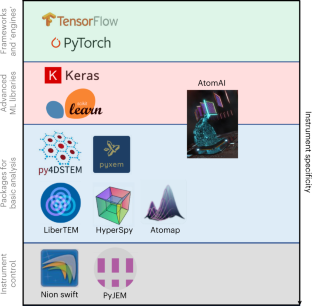2023-04-17 カリフォルニア大学校アーバイン校(UCI)
この研究により、機械的に回路の部品を再構成できる機能を備えた異なるタイプのデバイスアーキテクチャが実現できることがわかった。また、研究成果が産業界にどのように影響するかはまだ不明であるが、量子科学研究の新時代を切り拓くことが期待される。
<関連情報>
- https://news.uci.edu/2023/04/17/uc-irvine-physicists-discover-first-transformable-nano-scale-electronic-devices/
- https://www.science.org/doi/10.1126/sciadv.adf9558
低摩擦金滑りによる機械的再構成が可能なファンデルワールス素子 Mechanically reconfigurable van der Waals devices via low-friction gold sliding
Andrew Z. Barabas,Ian Sequeira,Yuhui Yang,Aaron H. Barajas-Aguilar ,Takashi Taniguchi ,Kenji Watanabe and Javier D. Sanchez-Yamagishi
Science Advances Published:7 Apr 2023
DOI:https://doi.org/10.1126/sciadv.adf9558

Abstract
Interfaces of van der Waals (vdW) materials, such as graphite and hexagonal boron nitride (hBN), exhibit low-friction sliding due to their atomically flat surfaces and weak vdW bonding. We demonstrate that microfabricated gold also slides with low friction on hBN. This enables the arbitrary post-fabrication repositioning of device features both at ambient conditions and in situ to a measurement cryostat. We demonstrate mechanically reconfigurable vdW devices where device geometry and position are continuously tunable parameters. By fabricating slidable top gates on a graphene-hBN device, we produce a mechanically tunable quantum point contact where electron confinement and edge-state coupling can be continuously modified. Moreover, we combine in situ sliding with simultaneous electronic measurements to create new types of scanning probe experiments, where gate electrodes and even entire vdW heterostructure devices can be spatially scanned by sliding across a target.



